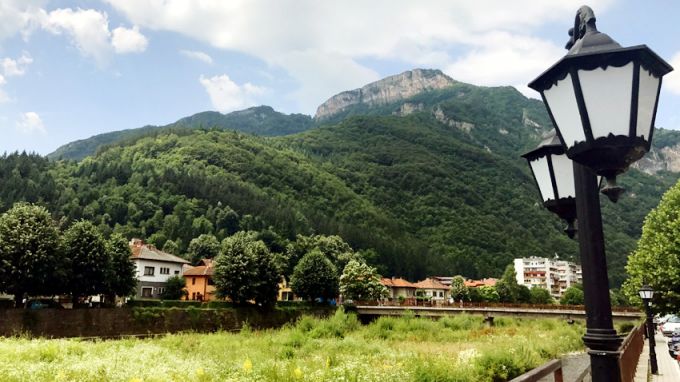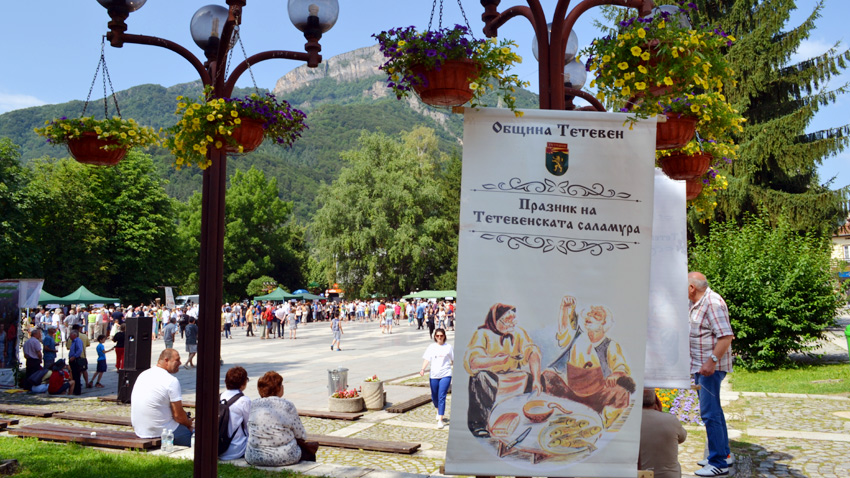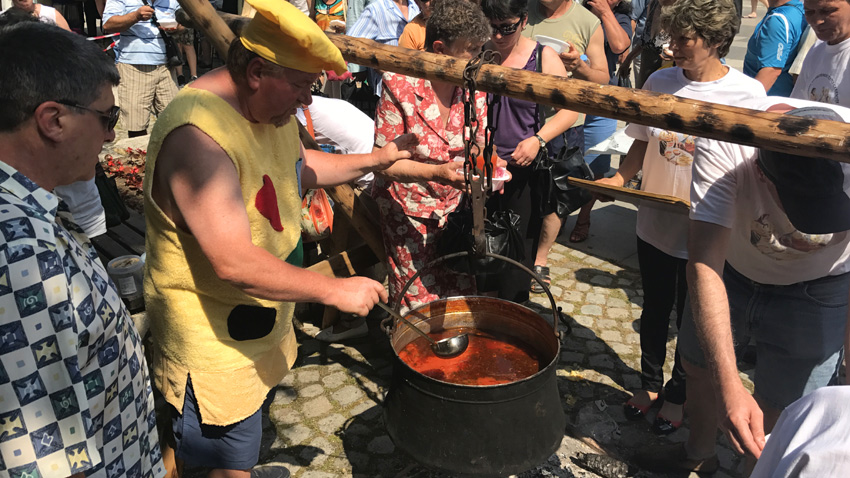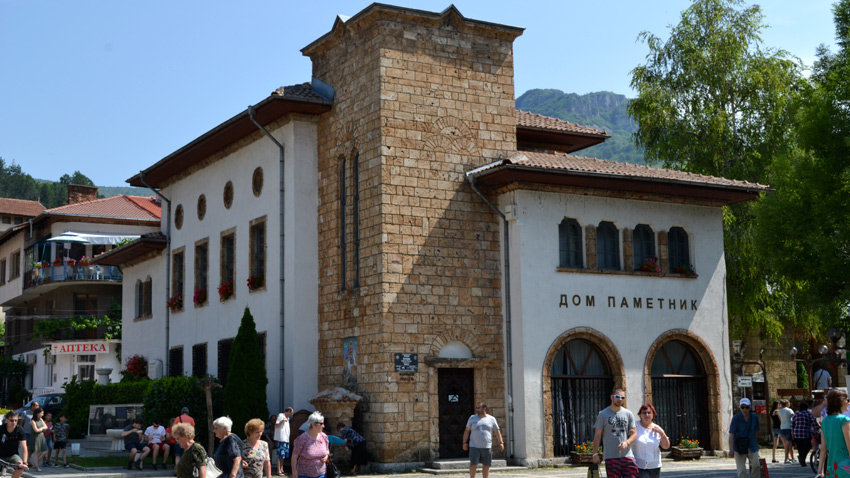 6
6
I tend to associate the town of Teteven in the Central Balkan Range with positive emotions from my childhood when, trying to escape the summer heat in Sofia, I went to visit my cousins in that nice town. I remember the green hills, the Balkan air coolness, the crystal-clear water of the river and the playful fireflies. With time my summers grew shorter and busier and my trips to this lovely town became fewer. We had stood apart for as long as 15 years, but about a week ago I was back there – with a smile and a warm emotion again. Few things had changed – the hills have the same mild green and people are as amicable. In fact I was back to Teteven to attend the festival of the Teteven brine.

Though I am not a great fan of the Teteven brine, the local fish soup, it was the star in the town’s central square. The locals told me the event had been held over the past two years and that the soup was the perfect meal for rakiya brandy. It is red, and its taste goes across a range of chili, sour and salty. One of the big booths that offered the local soup for free to visitors, was near the Fire Service. The firefighters said, smiling: “We have instructed everybody to be careful what they do today; we have no intention working during the festival.” Well, luckily, their services were not needed. Songs, dancing and many stories from the past and present were entertaining the crowd.

Teteven Deputy Mayor Boris Vrabevski told me interesting stories about the past of the region and expressed his joy that the festival had been attracting many people from across Bulgaria for a second year in a row. According to him this is the way to preserve the town’s culture and traditions and together with that the spirit of the locals will survive for posterity. Education of children and good family relations are on top of values here. I have learned that the region of Teteven has been populated since very ancient times. Some believe that its name derives from the Tetyov family, who founded the town. Others argue the name Teteven is associated with tetiva (bow-string), because the town is shaped like the string of a bow along the River Vit.

In the past, 27 types of crafts were run in the town, and the Teteven merchants were very successful and respected everywhere. The town was known as Altan Teteven (The Golden Teteven). Homespun tailoring, furriery and wood-carving were some of the crafts that made the region famous. Fishing continues to be a daily occupation. In 1801,Teteven was attacked by Kurdjali brigands, was devastated and almost reduced to ashes. It was revived in the 1850s and emerged as a leading center of crafts in the Bulgarian ethnic territory. Today one can see many houses of anti-Turkish rebels who fought for Bulgaria’s liberation in 19 c. They have been declared monuments of culture. Sightseeing in the region includes the town’s Museum of History, Glozhen Monastery, the Adrenalin Adventure Park and Skoka waterfall. There are a few eco-trials in the beautiful Teteven section of the Balkan Range. Coolness and mystery reign in the caves – Saeva Dupka, Draganchovitsa and Morovitsa. Let us wrap up this story about Teteven with a quote by Bulgarian classic, poet and novelist Ivan Vazov dedicated to the town: „Had I not visited Teteven I would have remained a foreigner in Mother Bulgaria… I have wandered and roamed a lot, but I haven’t seen a more wonderful haven.”
English Daniela Konstantinova
Photos: Luiza LazarovaA spectacular “amusement park” is open to divers 18 metres below the surface of the sea close to St. Anastasia island – an Orthodox chapel rises and opposite the church – a Soviet Chaika car with a chrome grill is parked. Right next to it there is a..
If you think that Northeast Bulgaria is only fertile granaries and plains, it’s time to take a look at the vineyards that stretch across thousands of acres in the region. Here, wine is part of people’s everyday life and culture. The data is impressive –..
Burgas is being promoted as an accessible and appealing destination for Turkish tourists, marking a new step in efforts to attract more visitors from Bulgaria’s southern neighbor to the coastal city and its surroundings, the municipal administration..
Bulgaria’s participation in this year’s World Travel Market (WTM) in London, November 4-6, is bold and ambitious. The national pavilion,..

+359 2 9336 661
